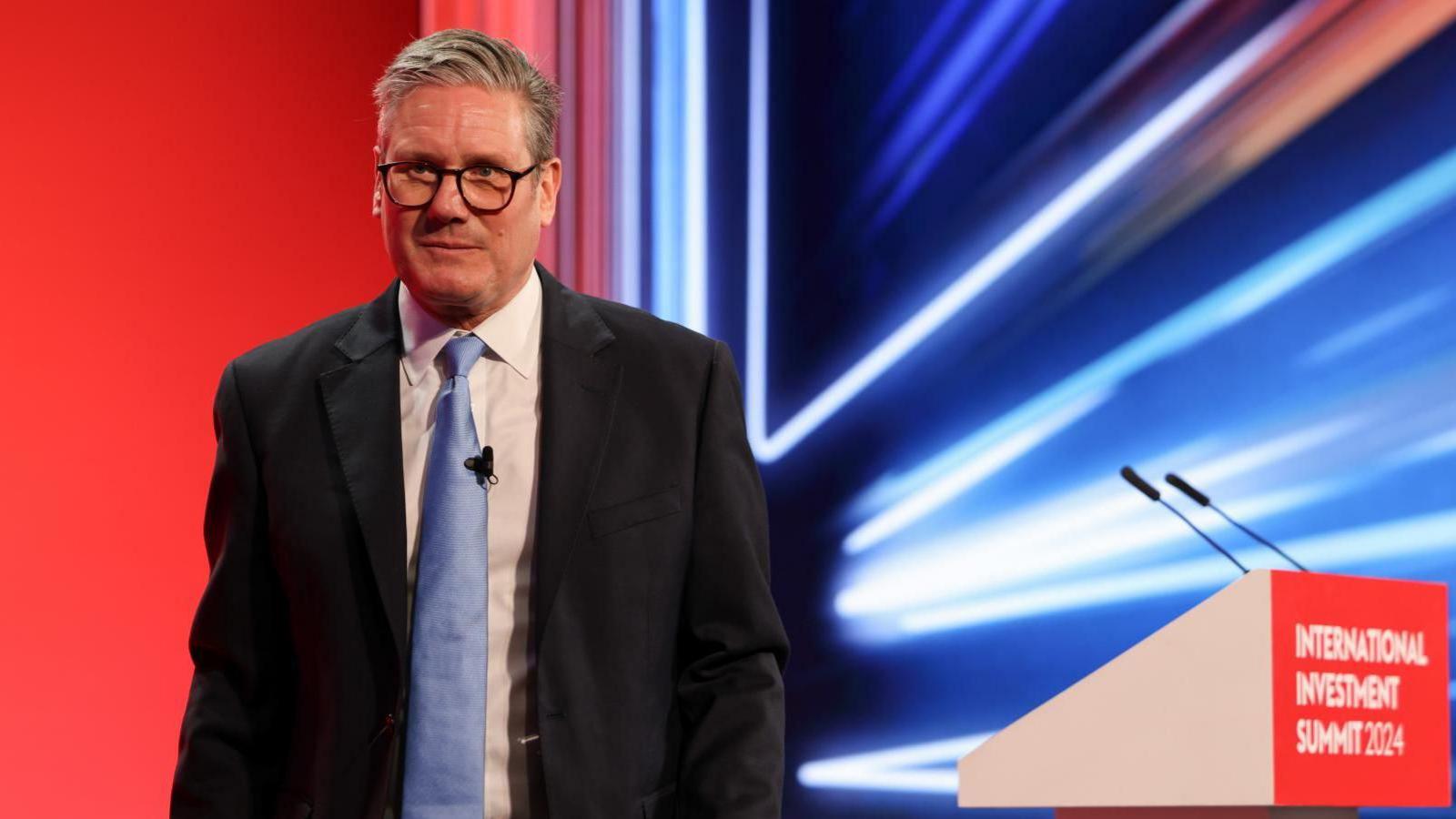Was Keir Starmer's investment summit a success?

- Published
If there was a word of the day, it was "stability".
At the UK's International Investment Summit on Monday, Sir Keir Starmer said his party's large majority would draw a line under an eight-year period in which the UK saw four prime ministers and six chancellors.
That is valued by international investors like Anders Opedal, boss of Norwegian Energy giant Equinor, which has invested billions in UK renewables as well as oil and gas.
Mr Opedal said: "I think the government are putting forward a very good strategy for how to improve, working together with the private sector, now it is about execution and getting execution right."
Domestic chiefs were also upbeat. Amanda Blanc who runs pension and insurance firm Aviva told the BBC "the mood was very positive."
The other word that came out of minsters' mouths a lot was "regulation". Not the sexiest of words or concepts, but it mattered a lot to the decision makers in the Guildhall on Monday.
Sir Keir said that, while not all regulation was bad, he wanted to sweep away the kind that requires energy companies to complete 4,000 documents to start building infrastructure.
Just last week, though, the government introduced the biggest increase in employment regulation in a generation.
Higher minimum wages, a plethora of rights, including protection from unfair dismissal from day one and a right for employees to insist on flexible working unless the employer can prove its not practical.
Even a new convert to Labour, the billionaire former Conservative donor John Caudwell said he had reservations about that.
He told the BBC he was "not very keen" on Labour's plans to increase workers' rights, calling them "a real burden on business".
Yet, he said businesses and potential investors, would "swallow the difficulties that come as a result of that extra regulation on employee rights" if the wider goal of growing the economy was met.
Sir Keir was clearly aware that was a source of disquiet for some firms and leaned into the subject, saying that more secure, better paying jobs increased disposable income and the tendency to spend it.
However, the elephant in the room was the Budget at the end of this month.
Speaking to reporters at the conference, Chancellor Rachel Reeves once again refused to rule out imposing National Insurance contributions on employer pension contributions - a potential £10bn to £20bn hit to employers.
Meanwhile, the chancellor gave her clearest indication yet she is prepared to ditch traditional methods of measuring national debt to invest in UK infrastructure, by referencing three former policy makers who support the idea.
Current rules require government debt to be falling as a percentage of national income by the end of the parliament.
Excluding borrowing to fund investment would give her tens of billions of pounds worth of extra wiggle room but could raise government borrowing costs as lenders to the government feel they are taking more risk.
The government also resurrected the idea of an Industrial Strategy, publishing a green paper that promised to enshrine it in law so it can't be easily binned as it was by the previous government.
It said it would not try and pick winners but focus on the UK's strengths across eight sectors: advanced manufacturing; clean energy industries, creative industries; defence; digital and technologies; financial services; life sciences; and professional and business services.
With a nod to the former England manager Gareth Southgate, who was a panel member to discuss the UK's creative and cultural strengths, Sir Keir said he wanted to make sure the pitch was mown and the changing rooms were nice for the teams playing.
Was the summit a success? Labour certainly think so and were keen to point out that last year's Sunak-led investment summit raised only £29bn.
By contrast, the government pointed to the £63bn in private sector investment as proof of that its plan was already working and said it was prepared to spend its own money to unlock even more investment. Some of this investment had already been announced previously.
These numbers are hard to judge. You never know how many of these investment would have been made anyway but are held back or accelerated to coincide with these events.
Its also hard to know how much is being held back the Budget, which many think will determine the government approach to tax, spending and borrowing for the rest of this parliament.
The kind of time frame these investors prefer.
Correction 19 November: This article was amended to say that the investment summit led by Rishi Sunak in 2023 raised £29bn, not £39bn as we originally reported.